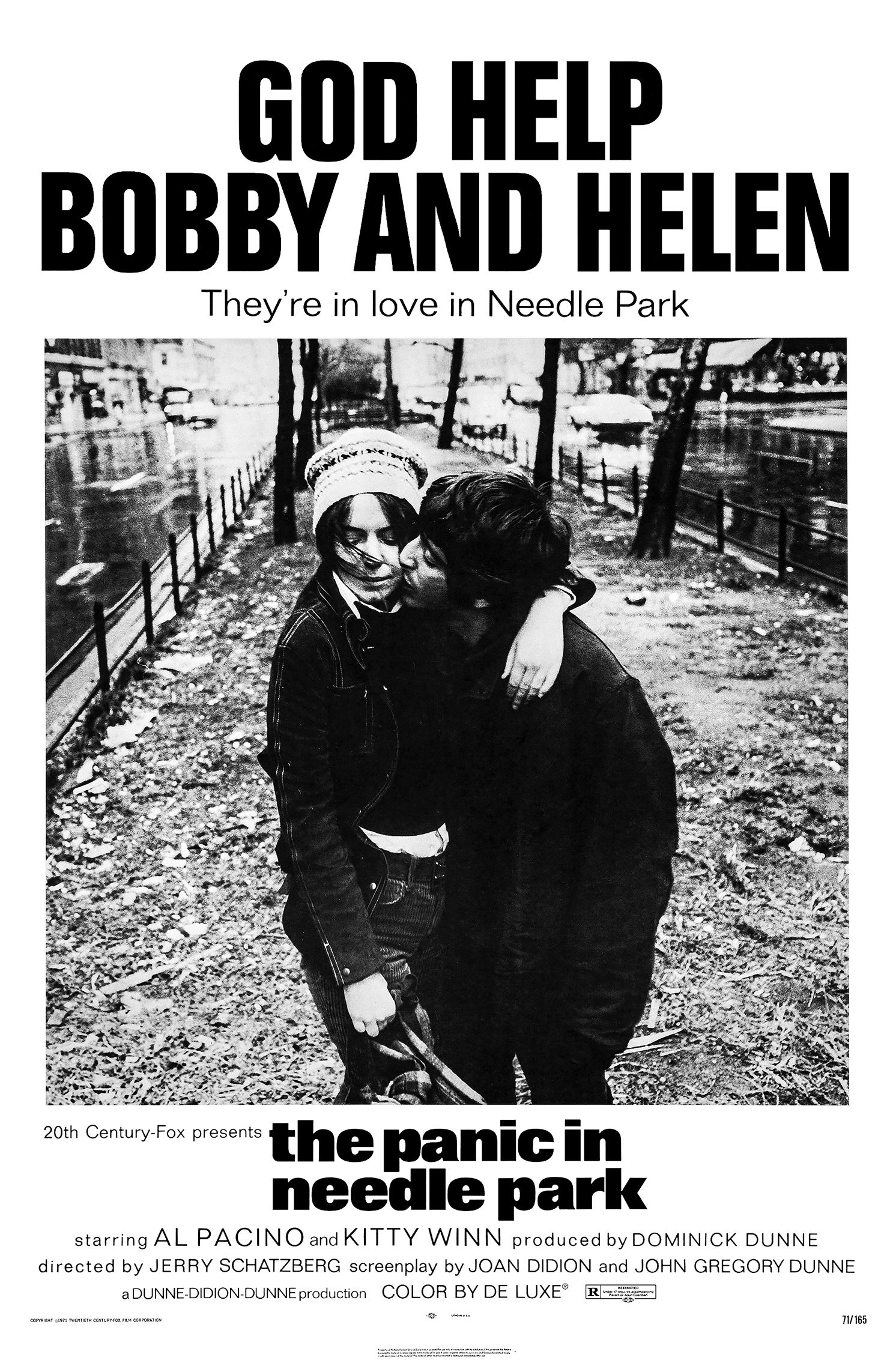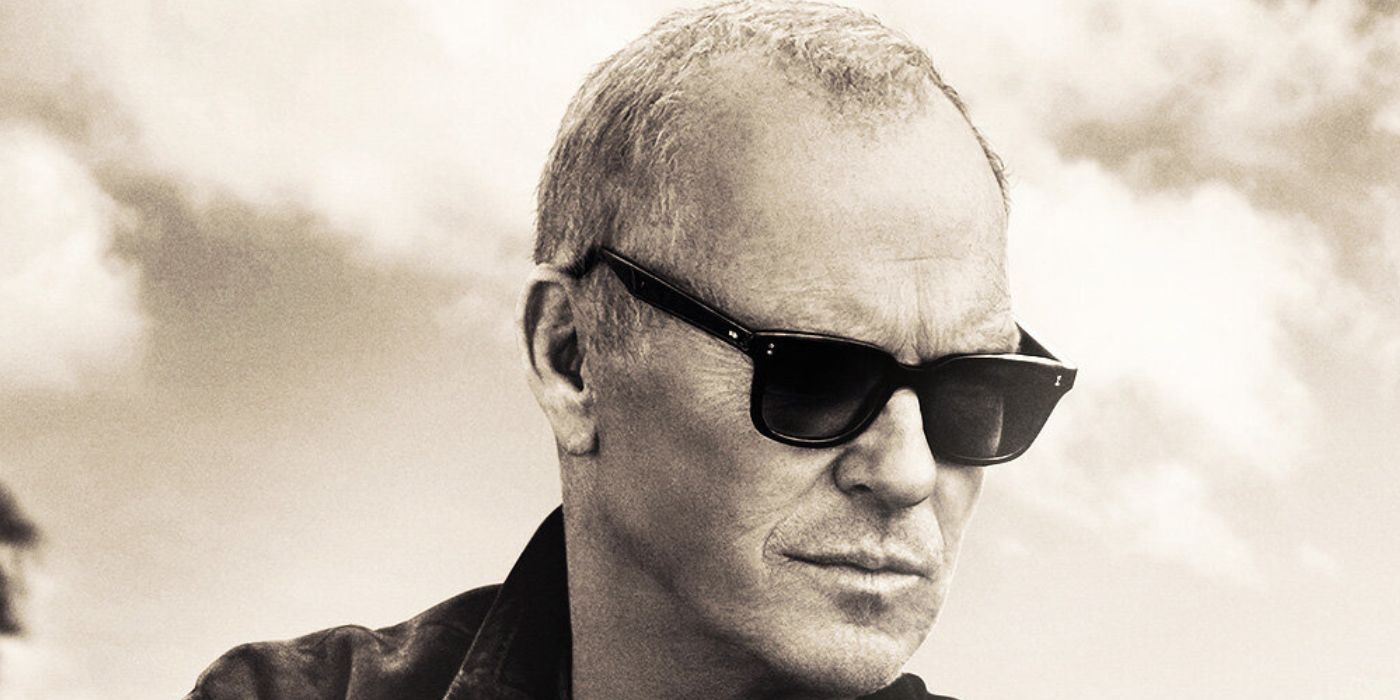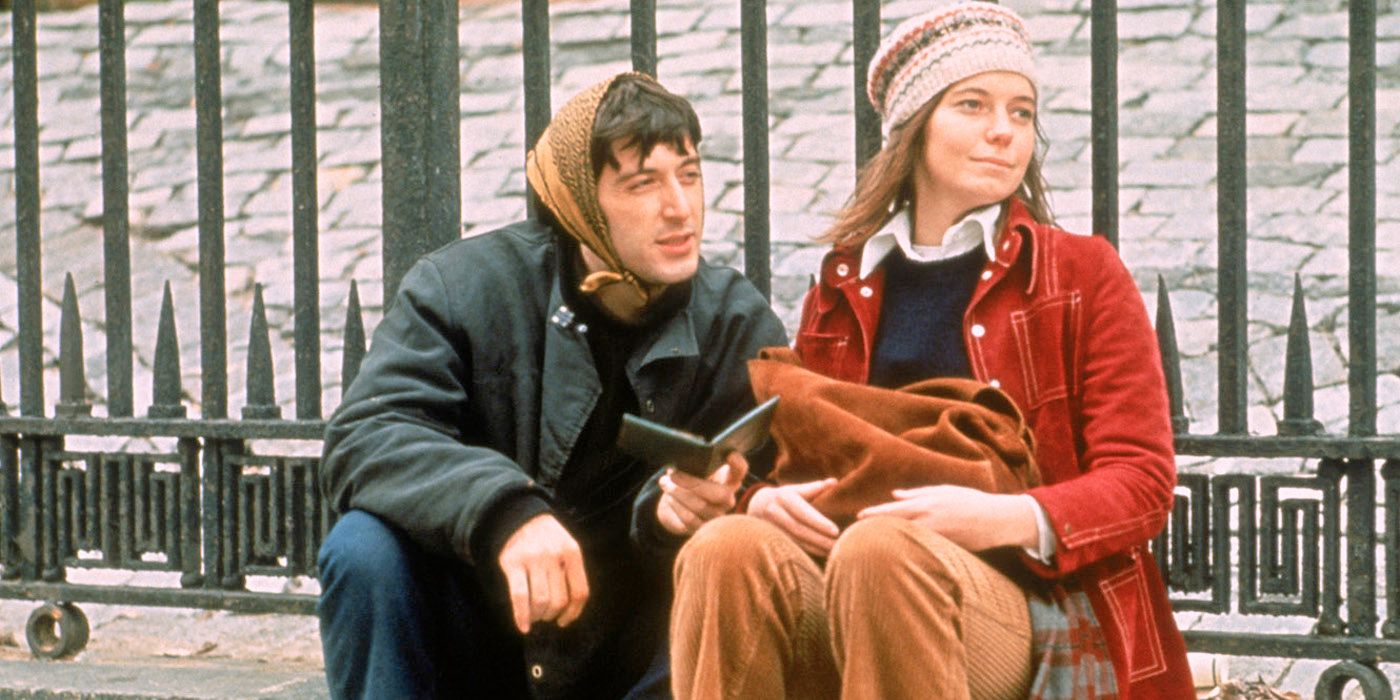The Big Picture
- Al Pacino's first starring role in The Panic In Needle Park showcases his charismatic portrayal of an enigmatic addict, Bobby.
- The film delves into the depravity of addiction, portraying a gritty tale of love and destruction amid the heroin scene of NYC.
- The relationship between Bobby and Helen undergoes heart-breaking betrayals and a descent into addiction, epitomizing the brutal reality of drug use.
Jerry Schatzberg's The Panic In Needle Park is a 1971 drama film co-written by Joan Didion and John Gregory Dunne, based on the 1966 novel of the same name by James Mills. What the film is arguably most remembered for is being Al Pacino's first starring role as Bobby, a small-time hustler and addict. The film is a gritty and harrowing tale of love and addiction in New York City, following the relationship of Bobby and his addict-to-be lover Helen (Kitty Winn), who falls deep into the NYC heroin scene, tarnishing their relationship and leading to a series of heart-breaking betrayals. Pacino's charismatic portrayal of Bobby is endearing and inviting, a beautiful trainwreck of a character whose spell is so effectively cast upon Helen. His cock-sure attitude and enigmatic personality are tragically undercut by the savagery of his addiction, which spreads like a disease into Helen, subsuming her morality in a heart-breaking corruption arc.

The Panic in Needle Park (1971)
Set in a notorious New York City locale, a romance blossoms between two lost souls who are drawn together by their shared affliction with heroin addiction. Their relationship, marked by brief highs and prolonged lows, paints a stark portrait of life and love within the throes of addiction.
- Release Date
- June 1, 1971
- Director
- Jerry Schatzberg
- Cast
- Al Pacino , Kitty Winn , Alan Vint , Richard Bright , Kiel Martin , Michael McClanathan , Warren Finnerty , Marcia Jean Kurtz
- Runtime
- 110 Minutes
- Main Genre
- Drama
- Writers
- James Mills , Joan Didion , John Gregory Dunne
'The Panic In Needle Park' Is A Harrowing Tale Of Addiction
The Panic In Needle Park is a film about the casualties of addiction. It is a harrowing tale of depravity and the ruinous nature of drug use, set against a fledgling romance between a small-time hustler and dope fiend, Bobby, and a virtuoso artist, Helen. Helen is a fundamentally good character, teeming with artistic talent and languishing in her boyfriend Marco's (Raúl Juliá) studio, recovering from a back alley and unhygienic abortion. Marco is halfway between a hedonistic hack job of an artist and a shiftless Bohemian. Helen shivers in a makeshift bed on Marco's floor and he suggests she smoke some pot to stave off the pain. Enter Bobby with the goods, verbally fencing with Marco over the price of the dope, but he also shows great tenderness to Helen. He covers her with a blanket and puts a scarf around her so she'll stay warm, and thus, their love affair begins. Helen has a soft touch, and a warm heart in a cold world surrounded by self-indulgent hipsters. She wants to be loved, and at that moment, she gets what she so badly needs. From that moment, Helen is hooked.
Bobby and Helen become inseparable, and he slowly brings her into his world, introducing her to a series of addicts, each one in a more hopeless situation than the last, into a secret New York Underworld of desperation and despair in an aptly titled heroin haven called Needle Park. This city within a city, a place populated by those poor souls ravaged by heroin use, becomes Helen's community, a place where all manner of iniquity abounds. Her talents go unused, sublimated into the skills necessary to score, as she ingratiates herself with Bobby by becoming a sex worker, eventually joining him in the torment of addiction. The two's love undergoes betrayal after betrayal, inducing a debasement of the spirit and body of Helen, a scathing comment on the brutality of addiction and the indifference of society. Eventually, Helen, sick with drugs, agrees to turn rat on Bobby, who takes up the business of distributing heroin in a needle park because, as she was so aptly warned at the beginning of the film by Detective Hoch (Alan Vint), junkies all turn rat. The story's moral is that drugs turn a person into the worst version of themselves.
Al Pacino Plays An Enigmatic Addict In 'The Panic In Needle Park'
With the horrors of addiction on full display in this gritty film, replete with shots of needles piercing veins and lighters burning dirty spoons, it's a wonder how Helen didn't run screaming for the hills. The Panic In Needle Park is far from a glamorous portrayal of addiction. As Helen and Bobby inject heroin in an alley, they dream their feeble dreams of working at a grocery store where they can steal all the groceries they want. If Helen is such a fundamentally good character, how the hell does she end up in such squalor? The answer lies in Bobby, the hustler. Bobby's nature is that of an opportunist, a person always playing the angles and looking for an edge. Every moment is an opportunity to ply his trade, most evident when he steals a television out of the back of a van on a whim, trading it for $25 at a pawn shop. He's silly with an aloof irreverence that feeds Helen's addiction — both to heroin and love. He fosters a co-dependency with her, as hustlers want to do, making themselves indispensable to ensure repeat business.

Michael Keaton and Al Pacino Grapple With Their Pasts in 'Knox Goes Away' Sneak Peek [Exclusive]
The film arrives on VOD on April 5.Therein lies the tragedy of their romance. Bobby and Helen begin as two crazy kids in love with all the hopes and dreams a new romance brings before it all goes to hell. The real genius of this film lies in Winn and Pacino's performances against each other. Helen's naivety is made all the more obvious when she meets Bobby, her timidity cutting through the hustle and bustle of New York in stark contrast to Bobby's manic energy. Indeed, Bobby seems more experienced and worldly, showing Helen how to survive on the mean streets. But as the two make their way through a needle-filled urban nightmare, their relationship devolves through the trauma of addiction in equal measure. Helen no longer looks at Bobby the same, her eyes vacant and long past love. The purity of their love is as tarnished as the spoons they cook their heroin in. The emotional weight of the decay of this relationship works to great dramatic effect. Each actor bolsters the others' performance by lifting the other up just before ripping the floor out from under them, precipitating a crash that is all at once fun and exhilarating but equally disgusting and awful, perfectly encapsulating the mystique and squalor of life dissolving one grain at a time into a vein.
Al Pacino Made a Career out of Playing Morally Complex Characters
Al Pacino is exceptionally skilled in creating an enticingly evil character instead of an appalling one, making for a compelling anti-hero. What's so conflicting about watching Pacino's performance is that he makes Bobby a likable character. He moves about the screen with easy yet unearned confidence, believing that his smart-ass ways will somehow carry him through all the filth of his existence. His mannerisms are big and boisterous. He is loud and oozes charisma, and it's difficult to believe that a man this funny could be dangerous, but that is why he is highly effective as an antagonist.
But as he and Helen lay in bed, his head tilted upward with his tongue lolling out of his mouth, the audience understands just how deep Bobby is into his addiction. He is a liar, saying whatever he must to get whatever he wants, and unfortunately, he wants Helen. Bobby believes he is above his addiction and that he has it all under control, but that is not true. Bobby is an agent of chaos, appealing yet banal enough to worm his way into Helen's life, where his evil can be done. Al Pacino becomes a secret antagonist, cleverly disguised as a lover whose faux charm and garish wit are his weapons of destruction.
This film is an early example of Pacino's skill at playing morally complex and dubious characters; noble savages who have become more refined in later films, especially The Godfather. Consider the character of Michael Corleone, who is every bit a savage and murderous gangster whose cold and calculating demeanor makes him a force to be reckoned with. It is Michael's devotion to family that makes him so enticing, because who could not admire a man who would go to such great lengths to ensure his family's prosperity? It almost excuses his actions. The same can be said of Tony Montana from Scarface whose relentless climb to the top is strangely admirable despite him being nothing short of a monster. That's Pacino's skill as an actor: He seems to intimately understand that the bad guys believe they are good guys — making it difficult for the audience to decide whether we should root for them or pray for their downfall.
The Panic In Needle Park is available to purchase on DVD and Blu-ray.

